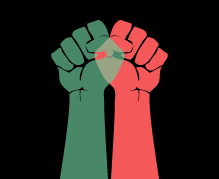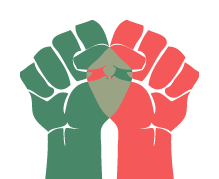Abolition 101 – Frequently Asked Questions
TW: harm, violence, mention of rape.
Harm has occurred. How do we want to respond?
Punishment for the abusers!!
Punishment does not undo the harm, nor does it promote healing for those who have experienced harm. More importantly, it does not tackle the root causes of harm (misogyny, racism, ableism etc) nor does it prevent the harm from happening again.
It will deter people from causing harm?
Imprisonment does not deter people from causing harm. If that were true we wouldn’t have any issues. It clearly does not work as people are still experiencing harm everyday. Prison is not rehabilitative either. It just assumes that harm is an individual issue rather than a societal or community issue.
I still want laws to say that harm is illegal
The current system for survivors of harm for example in rape cases, is not a pleasant one. Not only are instances of sexual violence underreported, the process of going through the gardai and court system is traumatising for a lot of survivors (hence many choose not to go to court). Our current system doesn’t work for something that is inscribed in law, so why do we continue to put our energy and time into a system that will not give us justice or healing? Why do we not demand more than laws?
But laws are justice and they protect us?
Laws and the police do not protect us all. A lot of people have never interacted with the law and cannot call on the police to protect them (undocumented people, cis women, gender non-conforming folks, disabled people) because the law and police disproportionately criminalises certain groups of people. The law by default is written by people in power (usually cis white men) to protect the interests of the powerful. Even if something becomes law, it does not mean our work is complete and that harm will stop.
If a certain law expands state and police power, it only means that the interests of the powerful will be protected even more and that the people who cannot rely on law are further erased from the discussion of harm and violence. Why do we waste our efforts in a system that does not protect the most marginalised people in our society?
On the other hand, abolitionists ask questions like:
Has the harm stopped? What can we do (without repeating cycles of harm and power imbalances) to stop the immediate harm?
What do the persons harmed want and need right now to feel safe?
How can the community provide that to the persons harmed?
How can the persons doing the harm be held accountable? (again without simply deferring to the state)
Abolitionists understands these key facts:
The current system is not broken – it works in preserving power and for powerful people to not be held accountable, does not prevent or deter future instances of harm. We don’t expect the same system that gave us the Magdalene Laundries and are currently imprisoning people in Direct Provision, to protect us from harm.
Responding to situations of harm are a LOT more complicated than just putting someone in prison and then forgetting about the issue, so it’s understandable why we don’t want to engage in this arduous process. But humans are complex so our solutions should be nuanced as well.
The prison and carceral system is inhumane and violent, causing more harm to people inside and repeating the cycle of harm and abuse. The person harmed and the person doing the harm both lose in our current scenario. Let’s not forget that this system disproportionately criminalises marginalised people (Black people, Travellers, People of Colour, migrants, Disabled people, etc.).
When it comes to dealing with harm, abolition is actually very practical. It requires us to have skills in communication, understanding consent and boundaries, giving effective apologies when harm has been caused, and caring for each other. It requires us to engage as a community and recognise the power of lots of people coming together to say that certain behaviours are unacceptable. If we directed our efforts towards this type of engagement, we would see radical change in the way we view and value each other.
Resources
- If you want to learn more about abolition, we have been hosting webinars on various topics that are all uploaded onto our youtube channel: https://www.youtube.com/channel/UCa8AK5pvMGHnDowkjVc5ZMg
- What is transformative justice? https://www.youtube.com/watch?v=U-_BOFz5TXo
- Everyday practices of transformative justice https://www.youtube.com/watch?v=F-UE8wwXEtc
- Critical resistance website http://criticalresistance.org/about/not-so-common-language/
- Critical resistance toolkit for organising http://criticalresistance.org/wp-content/uploads/2020/10/CR_Abolish-Policing-Toolkit_2020.pdf
- Reformist reforms versus abolitionist reforms (infographic) https://static1.squarespace.com/static/5e35a537763e8d15ff28a167/t/5f3e3141a920d85faa62fdde/1597911362285/Reform+vs+abolition+-+A2+poster+combining+the+A3+landscapes.pdf




